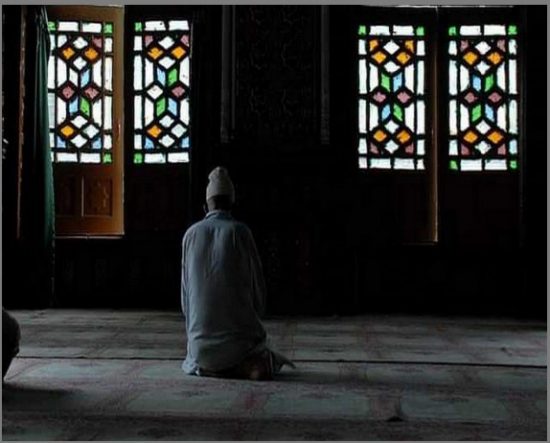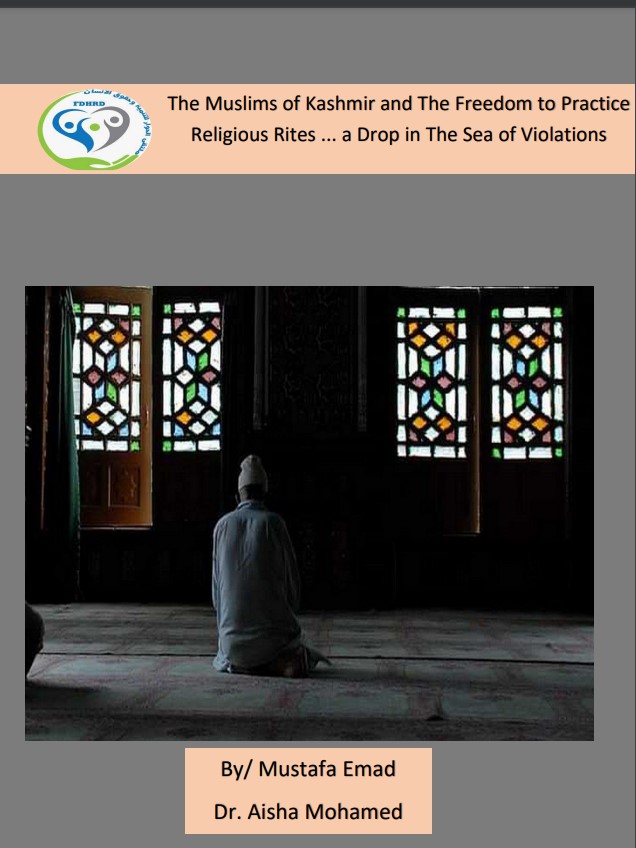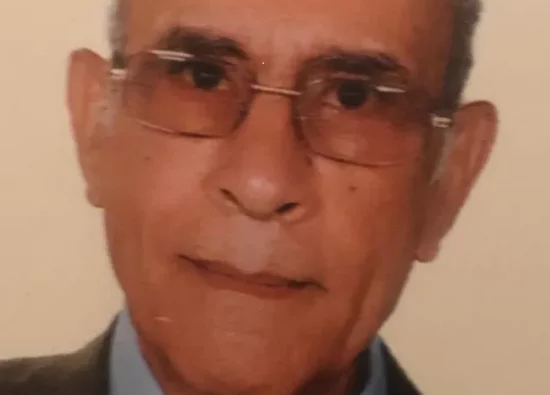Today, Tuesday 2/8/2022, the Research and Studies Unit at the Forum for Development and Human Rights Dialogue Foundation issued a report entitled:
“The Muslims of Kashmir and the Freedom to Practice Religious Rituals… A Drop in the Sea of Violations”
The report monitored the freedom of people’s practice of religious rites and rituals, as international treaties affirmed them as a human right and must be exercised freely. A person has absolute freedom to choose a religion or belief, and a society other than him in religion must respect the belief and accept the principle of peaceful coexistence and not compel him to embrace beliefs or practice religious rites, which are his dignity. International human rights conventions have included many texts that clarify the rights and duties of practicing religious rites, in order to avoid violence and religious persecution.
Despite this, the Muslims of Kashmir are subjected to restrictions on their freedom to practice religious rites and rituals in various forms, and this is religious persecution on the one hand, and a violation and discrimination of the rights of minorities on the other, given that Muslims represent 14% of the population of India.
The report dealt with a number of themes, the most important of which are:
First: The freedom to practice religious rites in international agreements
The practice of religious rites is considered a right of freedom of expression of belief that allows the holder of the religious belief to express and practice it without coercion. Without the freedom to declare affiliation to a particular faith, the ability to follow the teachings of the chosen faith, including religious rites, and to transmit them from one generation to the next, seems to be lacking. Thus, freedom of expression ensures the defense of cultural diversity resulting from religious diversity.
The practice of religious rites is closely related to the right to meet, because whoever embraces a religion seeks to spread it and spread its teachings and rituals, and this will only be achieved through meeting others. Everyone has the right to education because it makes it easier for him to learn about the various rites and rites of his religion.
Second: Features of violations of the rights of Kashmiri Muslims
Dealing with Muslims in Indian Kashmir – as part of India’s complete minorities – is subject to the provisions of the Indian Constitution and laws that specifically differentiate and discriminate in dealing with Muslims. The constitution defines the system of government as a multi-religious democracy; Any state is secular and protects freedom of religion or belief.
The report monitored the interaction of the international community with the issue, whether by the Red Cross, Amnesty International, the European Parliament and by Human Rights Watch.
Third: Restricting the freedom of Kashmiri Muslims to practice religious rites
Where the report highlighted images of violations of the freedom to practice religious rites in Kashmir, from the violation of the sanctities of mosques and the closure of five mosques in Kashmir in August 2019, the ban on holding prayers (Friday prayers in the historic “Jami’” mosque are regularly prohibited, in 2019, prayers were not allowed in Jama Masjid for 24 Fridays), the largest historical mosque in Kashmir “Great Srinagar” was closed completely.
The report concluded by emphasizing that the practice of Islamic rituals in a Muslim-majority region within a Hindu country has been considered a difficult matter throughout history, and the right to freedom of ritual practice is almost non-existent in light of the Covid-19 pandemic due to regulatory strictness, the ban and the general closure of mosques. If India claims democracy – according to its constitution – it must review that and abide by international human rights laws that it has signed and support freedom of religion or belief.








